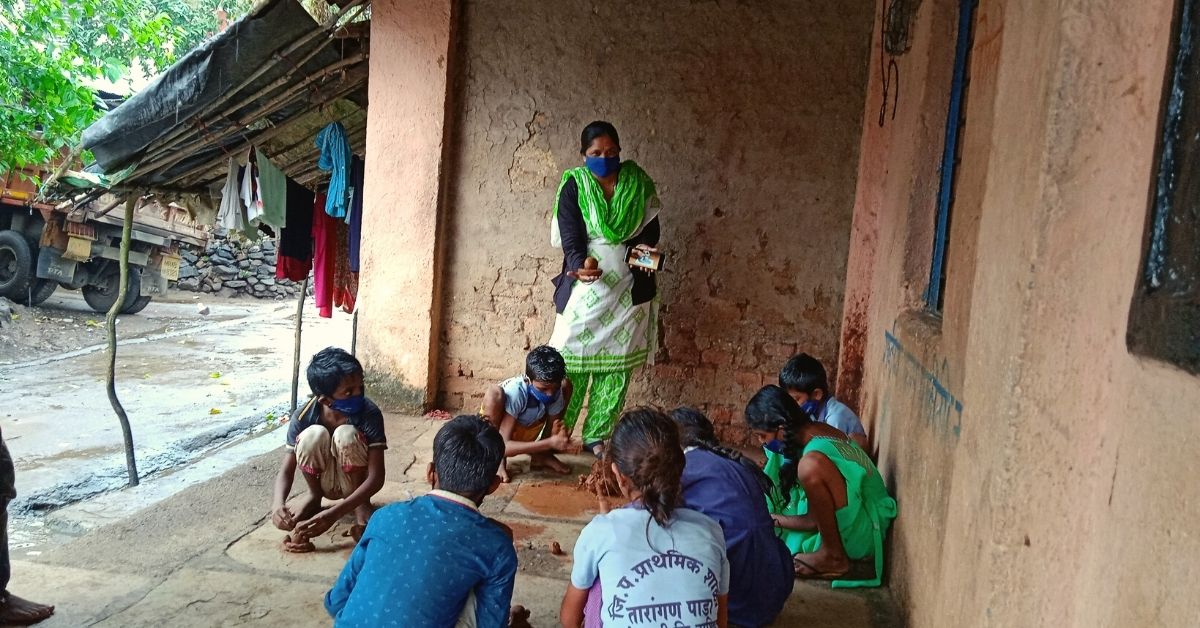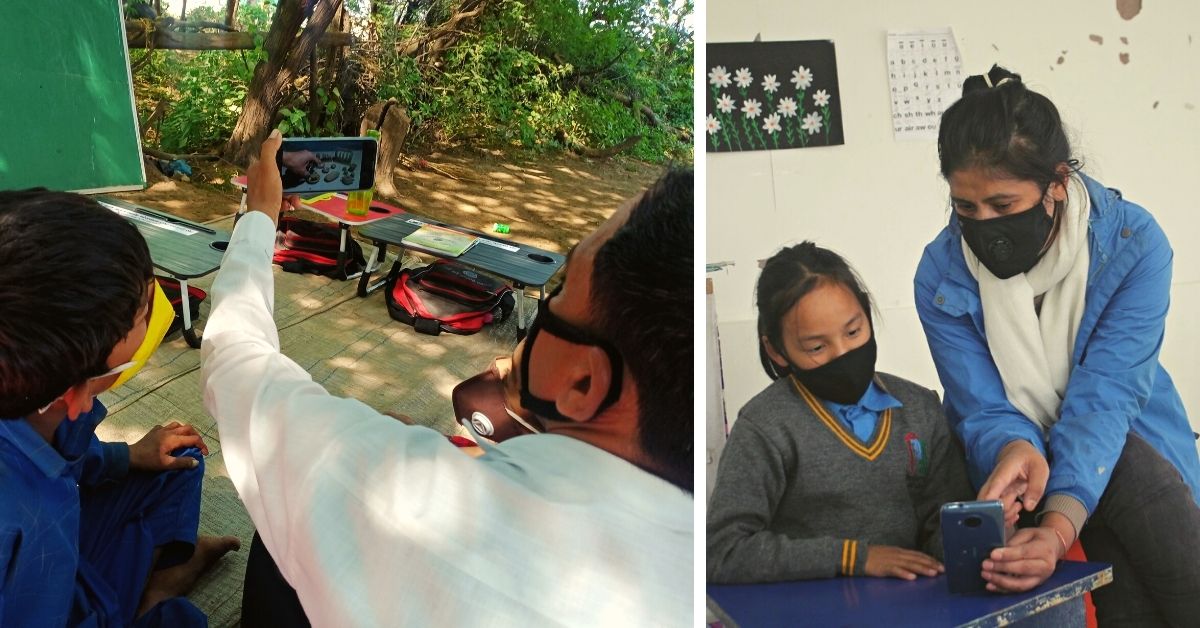This article has been published in partnership with Nokia.
For 7-year-old Siddharth Subba, “school is where home is”. It is a place where he indulgently dreams, plays football, learns poems, eats his meals and feels safe and belonged.
After being orphaned at a young age, it is the school and its regular routine that provided him with the much-needed stability. He is one of the many who are sheltered in a rural government school in a small village called Numla, Tawang, Arunachal Pradesh.
But last year, during the lockdown after the shutdown of all schools across India, their home began to feel empty. The routine was fractured as no classes were being held. But beyond missing over a year of education, they stood to lose — the company and connection to the only family they knew, their teachers.
Unlike few other students in the village, Siddharth or his fellow classmates living in this school did not have access to any technology to bridge that gap. With no laptops or smartphones at their disposal, they couldn’t attend online classes or video call their teachers to clear doubts.

But they were not alone. Another government school in Igatpuri, Maharashtra, was facing a similar situation. “The last couple of years have been extremely difficult not just for teachers but also the students. More than missing lessons, we were worried about drop-outs. With the schools closed, many parents who were barely able to make ends meet, began considering removing their kids from school. It took me years of work to convince the people about the importance of education and school and then all of it was on the verge of collapsing,” shares Nanda, who has been teaching and handling all the administrative work at the school since 2018.
“Giving up was never an answer for teachers,” reminds Vinod, another Zilla Parishad school teacher based out of Gujarat. He is the sole teacher in a government school located in an island village called Aliabet, Bharuch district, since 2005, and has been taking leaps and bounds to educate his students.
No stranger to challenges, he travelled more than 30 km and crossed a river, daily, to reach the remote island school. In a community that was completely cut-off from the outside world and one that only spoke a language called ‘Kutchi Boli’, he managed to communicate the importance of education and helped his students learn different languages like English, Hindi and Gujarati.
However, the sudden lockdown threatened to dismantle all their efforts. “These were young minds brimming with imagination but their wings were clipped and the window to the outside world bolted shut during the lockdown,” he says.
And it would have stayed that way for longer, if not for a social impact initiative that empowered these teachers with a solution.

Organised by @NokiamobileIN and The Better India, under the social impact campaign several teachers, including Vinod and Nanda, were selected from across the country. As agents of transformation they were entrusted to bridge the digital divide plaguing rural India, especially in the education sector. For this, each of these teachers were equipped with a number of Nokia smartphones that were to be used to aid online learning both remotely and in the classrooms once schools reopened.
This initiative opened up a new world for these kids and helped them not only cope with the missed lessons but also learn new skills and overcome their inhibitions. Talking about his learning experience through the smartphone, a Class 5 student, Yakeen Bin Yaseen says, “I was always very shy and nervous about speaking up in front of the entire class. But then our teacher encouraged us to explore new ways of learning. I would go around the house and click photographs of the things I saw and make a story presentation through a mobile application called Kinemaster. Then during the online classes, through video conferencing and screen sharing, I would confidently present my work. It is a lot of fun and doesn’t feel boring or scary at all.”
With access to smartphones, students like Yakeen and Siddharth are discovering new ways of connecting with the world around them and learning on the go. Their story and that of the hundreds of students impacted by this initiative is a reflection of the positive change technology can bring about. And this Children’s Day, we are sharing these stories of transformation to celebrate the beautiful bond between teachers and students that blazed through the tough times and overcame all odds.
With #LikeTeacherLikeStudent, The Better India is joining hands with Nokia Mobile to bring forth incredible stories of such teachers. To honour their passion for the profession, we will be donating Nokia smartphones to teachers to support them in creating an even greater impact with technology. Stay tuned to find out how these amazing teachers will use the devices to increase the impact they are already creating.
#LoveTrustKeep
No comments:
Post a Comment